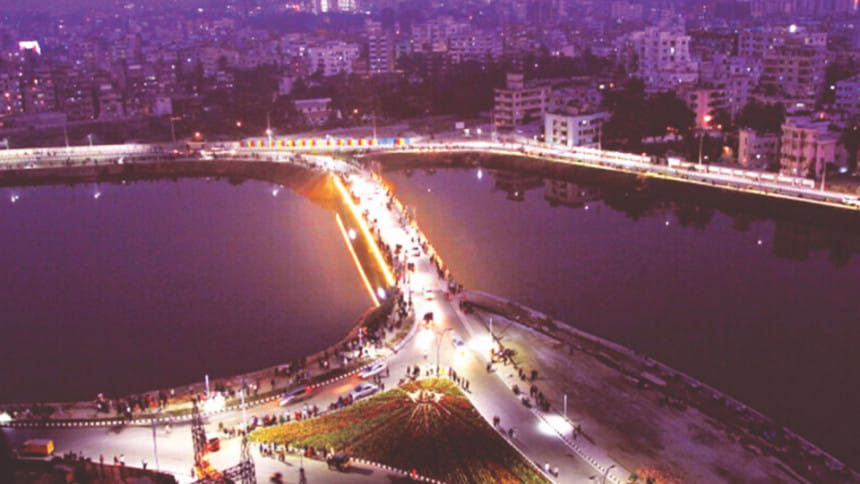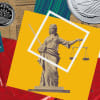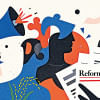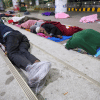Development and Democracy: Time to look to the East

It was December 6, 1971 in the White House situation room when the joint forces of Bangladesh and India were quickly marching towards Dhaka. It was a meeting of the National Security Council Action Group chaired by Henry Kissinger. It was concluded by the generals that the birth of Bangladesh was now a reality. At that point the Under Secretary of State U.A. Johnson warned that after the war, Bangladesh would be an "international basket case". Henry Kissinger added that "it will not necessarily be our basket case".
In 1975, a book from MIT, with contributions by four Nobel Laureates, among others, analysed the world food situation of that time and concluded that Bangladesh is like a patient in a hospital who has no possibility of survival, advising the international community to redirect its resources and attention to 'patients' who are likely to be cured with the adequate treatment.
After almost four decades, in its issue of June 17, 2015, The Christian Science Monitor in an article headlined, "From famine to food basket: how Bangladesh became a model for reducing hunger", wrote, "Four decades ago, the newly formed and desperately poor South Asian nation of Bangladesh saw its already-high levels of extreme poverty and chronic hunger skyrocket with floods, leading to the Bangladesh famine of 1974. . . Today, the one-time food basket case has transformed into something of a food basket – and a model for hunger reduction for the rest of the world".
"Bangladesh is one of three success stories of the last 10 to 15 years – Ethiopia and Nepal are the other two – that give us some hope on this goal" of eliminating hunger, says Glenn Denning, a professor at Columbia University's School of International and Public Affairs, New York, and a noted expert in development and nutrition.
In 1970, Bangladesh needed 15 million tons of food grains to feed its 75 million people, while it produced only 11 million tons with a shortfall of 4 million tons. In FY 2014-15, the country produced 38.4 million food grains and even attained the position to export food grains after feeding its current 160 million population. It is expected that the country will rank third in the world in terms of annual GDP growth in the next fiscal year.
The International Republican Institute (IRI) of USA in a recent survey reported that Bangladeshis are increasingly becoming optimistic about their better economic future. The survey, conducted by the US-based Centre for Insights in Survey Research, finds that 64 percent of respondents believed that Bangladesh is headed in the right direction, citing improvements in education, transportation and the economy as the three greatest reasons for the country's positive trajectory. These are among the findings of the latest IRI survey in Bangladesh, based on face-to-face interviews conducted with a randomly selected sample of 2,550 voting aged adults from October 30 to November 19, 2015.
Conducted in cooperation with international research firm Global Strategic Partners, the nationally representative sample was drawn from all 64 districts in the seven divisions of Bangladesh.
According to the survey results, respondents remain positive about the direction of their country and are satisfied with the state of the economy. Nearly 80 percent of Bangladeshi participants stated that the current economic conditions are very or somewhat good, with 72 percent indicating that their personal economic situation will improve in the coming year. The survey found that respondents seem to be developing a greater assurance of their future economic well-being. Nine out of 10 respondents stated that their family has enough income to afford basic commodities. Findings also show that support for the government has increased with 72 percent of respondents stating that they approved of the job being done by the government, an increase of six points from the last survey conducted in June.
Participants responding that democracy was more important decreased from 68 percent to 51 percent since the June survey, while participants responding that prosperity is more important increased from 27 percent to 45 percent.
In the midst of this growing optimism of Bangladesh's future, the survey showed a shift in the importance, which is almost equally divided, placed on a prosperous economy as compared to a democratic system of government, a liberal Westminster type of democracy that the country was trying to practice over the last 25 years or so.
The principal shortcoming comes from the country's failure to create a pluralistic political system; it has created a rather polarised political divide, where the divide, unfortunately, has become the blood–ridden history of its creation. As a consequence, even the caretaker system of government, which was thought to be the ultimate solution for holding a free and fair election and smooth transition of power, became the victim of manipulation, resulting in so-called '1/11' and consequently, almost two years of extra-constitutional rules.
Looking at the results of the IRI report and the shift in peoples' choice for prosperity, it is probably the time that the country looks to the East for guidance, where development has taken priority over liberal democracy as practiced in the West. A case in this could be either Malaysia or Singapore - both of these countries have achieved exemplary growth over the last 50 years.
In its obituary for Singapore's founding leader, Lee Kuan Yew, who breathed his last on March 23 last year, The Financial Times wrote, "Washington, D.C. is fast becoming an acronym for 'Dysfunctional Capital.' Singapore, in contrast, has become the poster child for 'the concept of good governance'".
"The exuberance of democracy leads to undisciplined and disorderly conditions which are inimical to development,' Lee was quoted as saying, with trademark pragmatism. "The ultimate test of the value of a political system is whether it helps that society to establish conditions which improve the standard of living for the majority of its people. Democracy is one way of getting the job done, but if controlled electoral procedures are more conducive to the attainment of valued ends, then I'm against liberal democracy. Nothing is morally at stake in the choice of procedures."
In Lee's view, "Democratic procedures have no intrinsic value. What matters is good government." According to the Singaporean strongman, the government's primary duty is to create a "stable and orderly society" where "people are well cared for, their food, housing, employment, health". Like Mahathir Mohamad, Lee argued that there were hard and clear differences between "eastern" and "western" cultures. In the former, the individual matters less than in the latter, and, as a consequence, in the former, human rights matter less than the need for security of collective and economic growth.
The writer is the Convenor of the Canadian Committee for Human Rights and Democracy in Bangladesh.

 For all latest news, follow The Daily Star's Google News channel.
For all latest news, follow The Daily Star's Google News channel. 








Comments